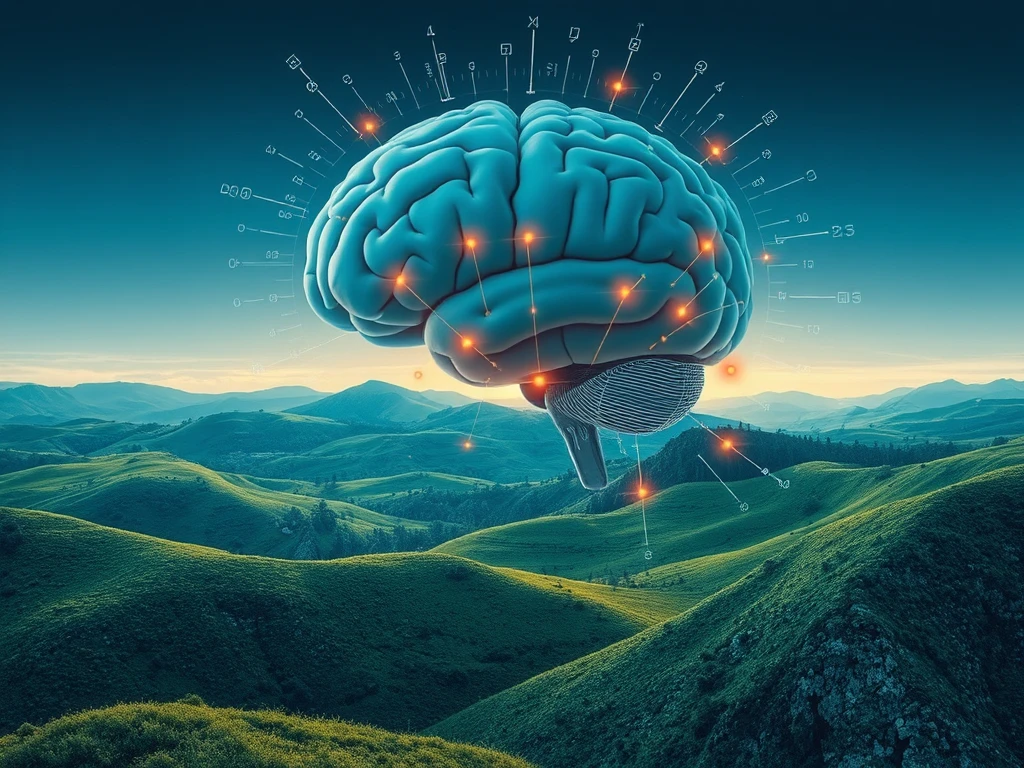Shocking: MIT Study Reveals ChatGPT Could Impair Cognitive Ability

Are you relying heavily on AI tools like ChatGPT for writing, research, or daily tasks? While these tools promise increased productivity, a recent study raises significant concerns about the potential ChatGPT cognitive impact on our brains. If you’re a crypto enthusiast navigating complex markets or technical documentation, you might be using AI to help process information. But is this help coming at a hidden cost?
What Did the MIT Study on AI Brain Research Find?
Researchers at the Massachusetts Institute of Technology’s Media Lab conducted a study involving 54 participants. They were assigned to complete essay writing tasks using different methods:
- Using ChatGPT
- Using search engines
- Using only their own brains
In a follow-up session, the groups swapped methods (ChatGPT users went tool-free, brain-only users used ChatGPT) to observe changes. The results from this MIT study ChatGPT interaction were noteworthy.
Is ChatGPT Causing Memory Loss?
One of the most striking findings related to memory recall. The study indicated poor memory among heavy AI users. Over 83% of participants who used ChatGPT were unable to quote from essays they had written just minutes earlier. This suggests a potential link between heavy AI reliance and immediate ChatGPT memory loss regarding the content created.
As one observer put it, “You write something, hit save, and your brain has already forgotten it because ChatGPT did the thinking.”
Reduced Brain Engagement with AI Assistance
The MIT researchers used electroencephalography (EEG) to measure brain activity during the tasks. They observed that brain connectivity and engagement decreased systematically with the amount of external support used.
- The ‘Brain-only’ group showed the strongest and most widespread brain networks.
- The ‘Search Engine’ group showed intermediate brain engagement.
- The group using LLM assistance (ChatGPT) exhibited the weakest overall brain coupling.
This analysis from the AI brain research suggests that relying on AI tools might reduce the brain’s need to actively engage with the material.
Understanding Cognitive Debt AI Creates
The researchers introduced the concept of “cognitive debt.” This occurs when repeated reliance on external systems like LLMs replaces the cognitive processes required for independent thinking and learning. Essentially, you defer mental effort in the short term.
However, this deferral comes with long-term costs. The study suggests that accumulating cognitive debt AI reliance creates can lead to:
- Diminished critical inquiry
- Increased vulnerability to manipulation
- Decreased creativity
This ‘cognitive debt’ is a critical takeaway, implying that while AI saves immediate effort, it might hinder the development and maintenance of essential cognitive skills over time.
Impact on Learning Ability
Although this paper is yet to be peer-reviewed, its findings point to a likely decrease in learning skills associated with heavy AI LLM usage, particularly concerning for younger users or students. The researchers believe extensive longitudinal studies are needed to fully understand the long-term impact on the human brain before AI chatbots are definitively considered a net positive for human cognition.
ChatGPT’s Perspective
When asked about the study, ChatGPT itself responded, “This study doesn’t say ChatGPT is inherently harmful — rather, it warns against overreliance without reflection or effort.” This aligns with the idea that the issue might be the *way* people use the tool, rather than the tool itself being inherently bad.
Summary: Navigating the AI Future Responsibly
The MIT study provides a valuable early look at the potential ChatGPT cognitive impact. While AI tools offer undeniable benefits for productivity and access to information, this research highlights the importance of mindful usage. Overreliance could lead to reduced memory recall, decreased brain engagement, and the accumulation of ‘cognitive debt,’ potentially hindering critical thinking and learning. As AI becomes more integrated into our lives, including within the crypto and tech spaces, understanding these potential cognitive costs is crucial. It suggests a need to balance AI assistance with active, independent cognitive effort to ensure these powerful tools enhance, rather than diminish, our mental capabilities.








